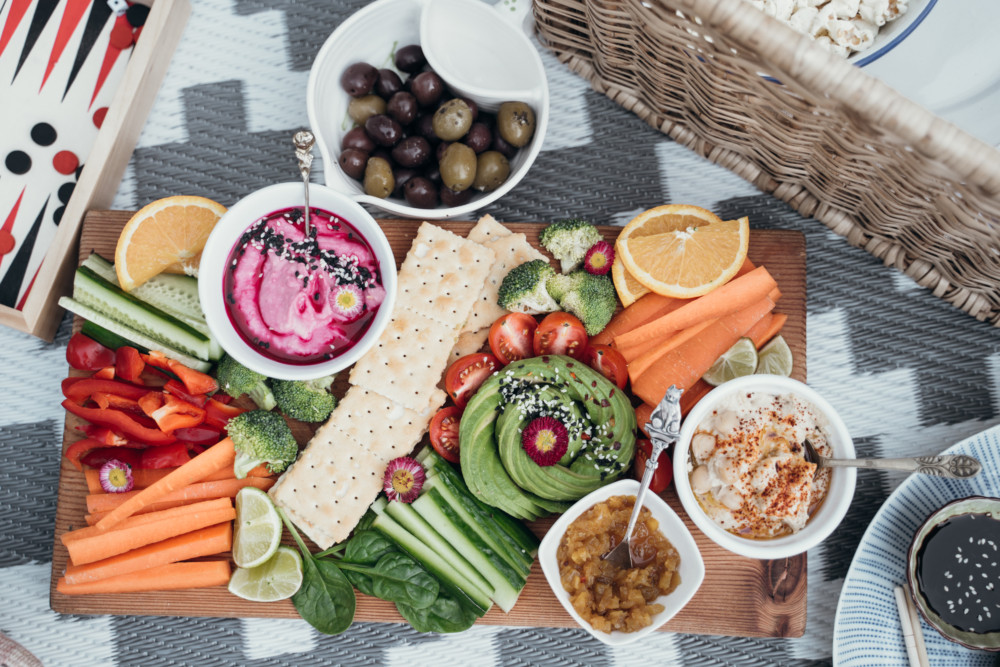
Over the years, people have grown interested in plant-based diets, whether for lifestyle, cultural, or health reasons. While it can be easy to oversimplify the correlation that plant-based diets mean a healthier body, various studies over the years have tried to go into more detail. A study published in the Frontiers in Public Health journal found that plant-based diets help prevent digestive cancer in people, for example. This is due (in part) to the high intake of vitamins and minerals found in plant-based diets, which are beneficial against cancer.
Similarly, we at VEGWORLD Magazine have previously covered plant-based diets and their impact on cardiometabolic outcomes. Aside from a decrease in cholesterol levels, research showed that the diet intervention also helped reduce insulin resistance and average body weight. Today, we’ll focus on that last bit and go over some things you can do to enhance your plant-based diet and lose weight.
Keeping Your Plant-Based Dishes Flavorful
A common misconception about adopting a plant-based diet is that the food will taste bland because plant-based ingredients are… bland. But that’s a misconception for a reason. The truth is that plant-based ingredients can still ensure flavorful and filling meals, as long as you’re open-minded and willing to do the research. According to Tasting Table’s tips, you can replace eggs with bananas, for instance, which means you don’t have to let go of your baking endeavors, as ripe mashed bananas help bind ingredients together.
On the other hand, if you’re missing the sweetness found in sugary foods, sweet potatoes are great tasting and naturally sweet ingredients, and mashing them can act as a butter replacement for savory dishes that need rich texture. So, a plant-based diet doesn’t have to be bland. Whole plant foods are a great source of both nutrients and taste and have the added benefit of being lower in calorie density. All it takes is a little bit of research.
Tracking What You Consume
Optimizing your plant-based diet for weight loss can feel difficult. Not only do you have to consider the caloric density of the foods you eat, but you also have to take note of calories burned during exercise as well. Tracking what you consume can help you develop a sustainable eating plan and better form healthier eating habits for safe weight loss.
Case in point, WeightWatchers’ weight loss programs incorporate an app that tracks not only the food you consume but also your water intake, sleeping habits, and activity levels. WeightWatchers notes that food tracking is a big predictor of success; however, their programs also highlight consistency more than perfection – it’s better to keep track of some foods on most days rather than tracking everything you eat only some days of the week. For vegans, tracking your food intake is especially important because it lets you know what nutrients you’re getting per meal and which ones you may be lacking to keep healthy.
Trying Out New Dishes
We mentioned the importance of keeping an open mind for your plant-based diet. Researching unique and interesting ingredient replacements is a great start, and knowing what nutrients you may be lacking to maximize your energy while losing weight is a good follow-up. However, you shouldn’t get lost in the same cycle of vegan dishes just because you already know they work. There are so many vegan recipes to try, as plant-based eaters have been around for centuries, all over the globe.
A lot of plant-based myths revolve around the food tasting bland or looking unappetizing, but our arsenal of plant-based recipes at VEGWORLD Magazine says otherwise and ensures you still get the nutrients you need on your weight loss journey. We also offer the latest news and studies relevant to vegan living, so be sure to check them out to stay on top of your healthy eating.

